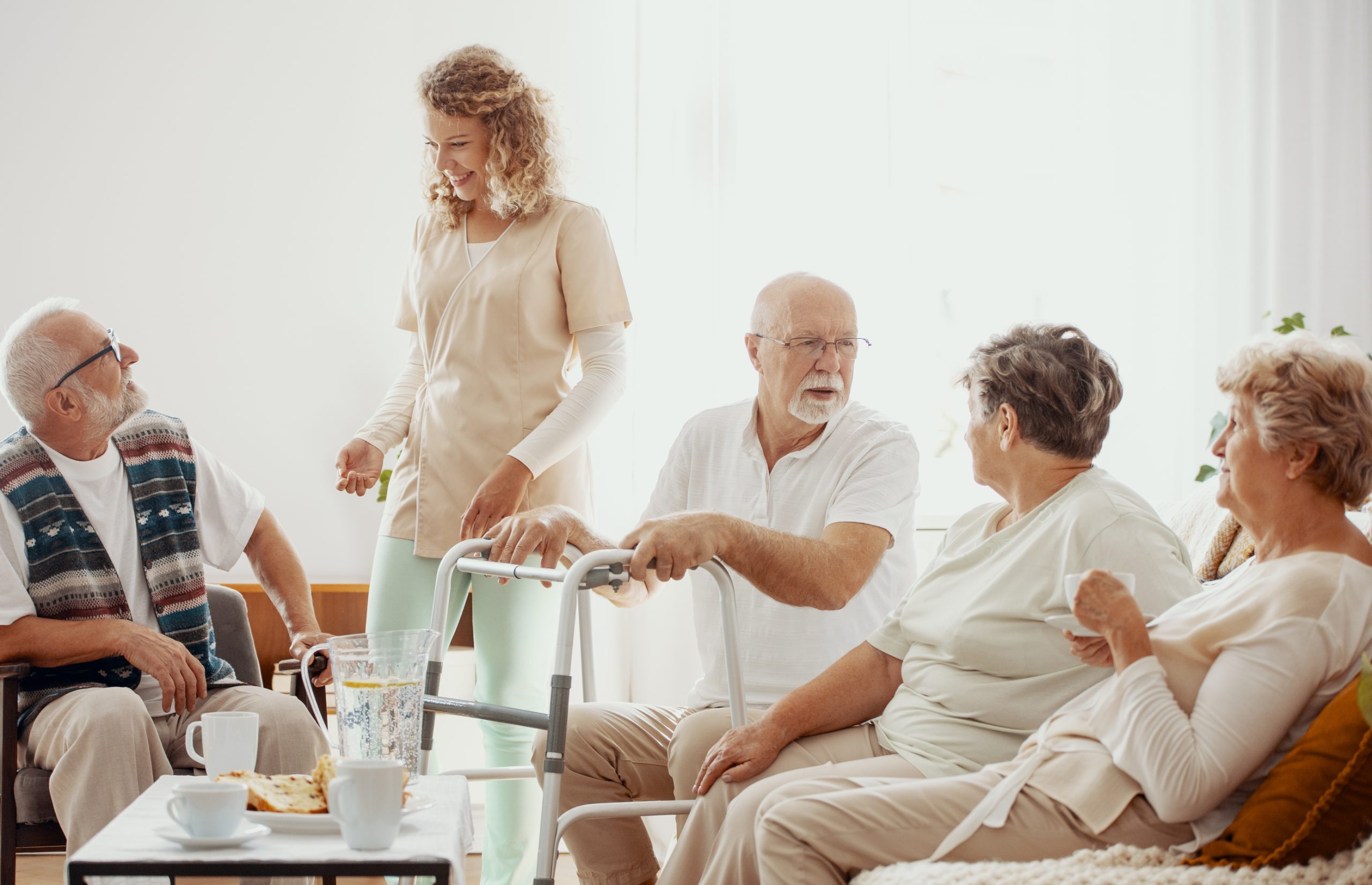Carehomes prepare to mitigate risks of Covid19 transmission

As we move through the COVID-19 pandemic new research indicates the coronavirus may be transmitted through airborne aerosols. Care homes eager to keep their facilities safe are exploring the need for air purification, especially as cooler weather hinders access to open doors and windows. At the beginning of the pandemic, official guidelines from the World Health Organization (WHO) focused on addressing droplet transmission. When people sneeze, cough, or talk they expel particles which contain droplets and aerosols.
Droplets are heavy and fall to the ground or surfaces within seconds and don’t travel far. As a result, experts advised care homes to focus on surface cleaning and hand washing to mitigate the spread of the virus. Now scientists have evidence that airborne aerosols can transmit the virus. Aerosol particles are smaller, lighter and can linger in the air for hours and drift further, particularly indoors, causing potential transmission of the coronavirus.
In early July, an international group of 239 scientific experts wrote an open letter to the WHO outlining evidence that aerosols can transmit the virus. Scientists contend that well-researched cases, including an outbreak following a rehearsal of the Skagit Valley Chorale (SVC) in Washington where 53 SVC members took ill, and the instance of restaurant diners in Guangzhou, China where an air-conditioner blowing air particles caused infections, indicate the inhalation of respiratory aerosol can cause outbreaks.
The WHO has now acknowledged that the spread of COVID-19 from airborne transmission is plausible, notably in poorly ventilated and crowded spaces. The Center for Disease Control and Prevention (CDC) has followed suit.
Care homes looking to protect their vulnerable populations recognize the importance of air purification. “Yet, to be effective, an air purification unit needs proper engineering,” says Christian Hendriksen, a co-founder of Rensair, a company that offers portable, hospital-grade purification units. Designed by a Danish ventilation engineer and used in Scandinavian hospitals for more than 10 years, Rensair uses HEPA 13 filters and ozone-free UVC light. “Rensair captures and also inactivates more than 99.7% of airborne bacteria and other airborne pollutants including coronavirus,” says Hendriksen. Rensair is providing air purification units to the National Health Services (NHS) and has just completed a large order to a Florida Care Home group.
It is clear that mitigating airborne aerosol transmission is a top priority for care homes looking to protect their patients and employees.
Learn how Rensair air purification can help your care home.
